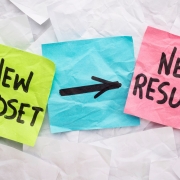Mindset Training Exercises for Teen Athletes
In the world of sports, success isn’t just about physical prowess; it’s equally dependent on a strong and resilient mindset. Teen athletes, in particular, can benefit immensely from mindset training exercises. These exercises not only help enhance their performance but also equip them with valuable life skills. In this blog, we’ll explore the importance of mindset training for teen athletes and introduce some effective exercises that can make a real difference in their athletic journeys.
The Power of Mindset in Sports
A winning mindset is often the differentiator between two equally talented athletes. While physical conditioning is crucial, it’s the mental game that sets champions apart. Teen athletes who cultivate a strong mindset can handle pressure, setbacks, and competition more effectively. Here are a few reasons why mindset training is essential:
Resilience: Mindset training helps teens bounce back from defeats and setbacks, turning them into opportunities for growth.
Focus: It teaches them to maintain concentration even in high-pressure situations, which is vital in sports.
Confidence: A positive mindset fosters self-belief, reducing performance anxiety and improving overall confidence.
Motivation: When teens understand the power of their minds, they can stay motivated through challenging training sessions and demanding schedules.
Effective Mindset Training Exercises for Teen Athletes
Visualization: Encourage teens to create a mental image of their ideal performance. Visualization helps them become more familiar with success, making it easier to achieve.
Positive Self-Talk: Teach them to replace negative self-talk with positive affirmations. This can boost self-confidence and help combat self-doubt.
Goal Setting: Guide them in setting specific, measurable, achievable, relevant, and time-bound (SMART) goals. Tracking progress towards these goals can motivate them.
Breathing Techniques: Deep, controlled breathing can help manage anxiety and increase focus. Teach teens to use breathing exercises to stay calm under pressure.
Mental Toughness Training: Create challenging scenarios in practice to help them build mental toughness. This could involve timed drills, simulated high-pressure situations, or intense competition.
Mindfulness and Meditation: Introduce mindfulness and meditation to help teens stay in the present moment and avoid distractions during competition.
Failure Analysis: Encourage them to see failure as a stepping stone to success. Analyzing what went wrong after a poor performance can lead to valuable insights and improvement.
Mentorship: Connect them with experienced athletes or coaches who can share their wisdom and help teens develop the right mindset.
Mindset training is a crucial component of a teen athlete’s development. It enhances their performance on the field and equips them with valuable life skills that extend far beyond their athletic careers. By practicing visualization, positive self-talk, goal setting, and other effective exercises, teen athletes can cultivate a mindset that empowers them to excel in sports and in life. Encourage them to embrace these exercises and watch them become stronger athletes and more resilient and confident individuals. With the right mindset, the possibilities are endless and winning becomes a natural outcome.
Gratitude Journaling Exercise
Gratitude journaling is a straightforward yet powerful exercise that can help teen athletes develop a more positive and resilient mindset. It encourages them to focus on the positives in their lives, even when faced with challenges in their sports endeavors. Here’s how to do it:
Materials Needed:
A notebook or a digital journaling app.
A pen or a device to type on.
Instructions:
Set a Routine: Encourage the teen athlete to pick a specific time each day for their gratitude journaling, preferably in the morning or before bedtime. Consistency is key.
Reflect on the Day: Ask them to think about their day regarding their athletic pursuits and personal life. What positive experiences, interactions, or moments stood out?
List Three Things: Have them write down at least three things they are grateful for. These can range from small, everyday joys to more significant achievements.
Elaborate: Encourage them to write a sentence or two explaining why they’re grateful for each item on the gratitude list. This helps reinforce the positive feelings associated with these moments.
Review and Reflect: Every few days, have them revisit their gratitude journal entries and reflect on their progress in cultivating a positive mindset.
Benefits:
This simple exercise fosters a more optimistic and resilient mindset by shifting the focus from what’s lacking to what’s abundant in their lives. By regularly acknowledging and appreciating the positive aspects of their experiences, teen athletes can train their minds to be more optimistic and better equipped to handle challenges in sports and in life.
Remember, the journey to a winning mindset is a marathon, not a sprint. Incorporating exercises like gratitude journaling into their daily routines can make a significant difference over time.








